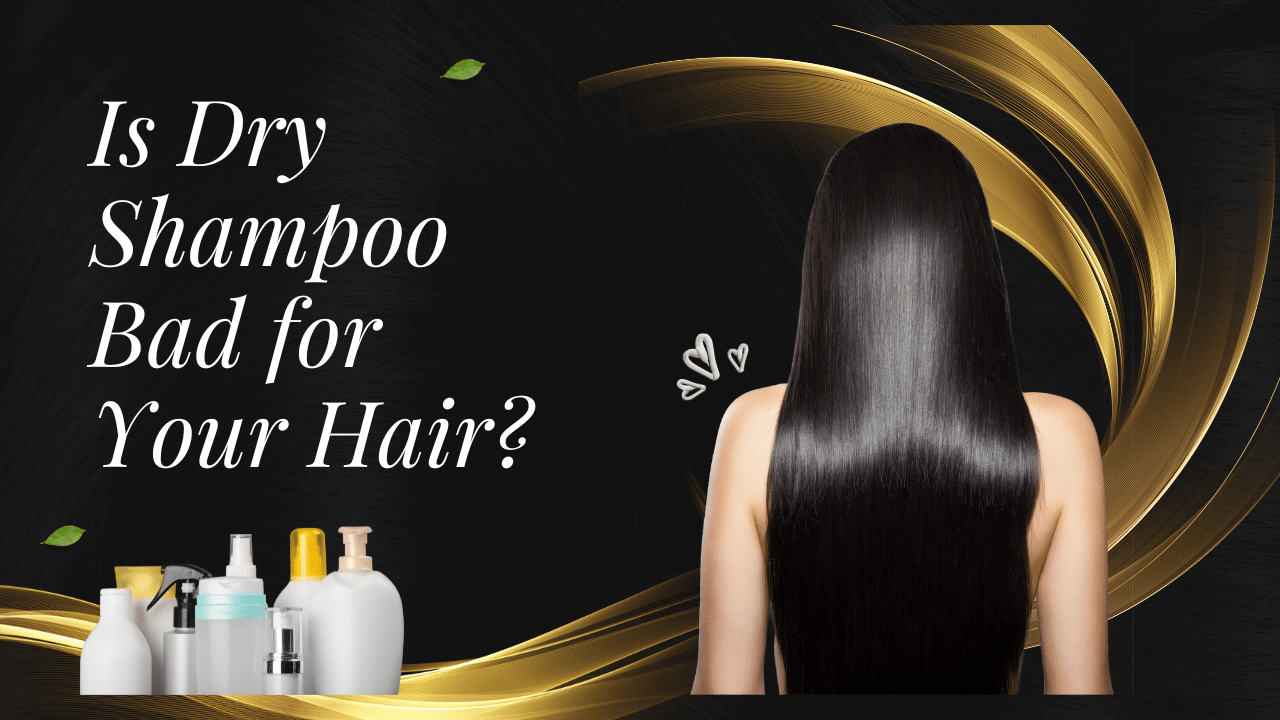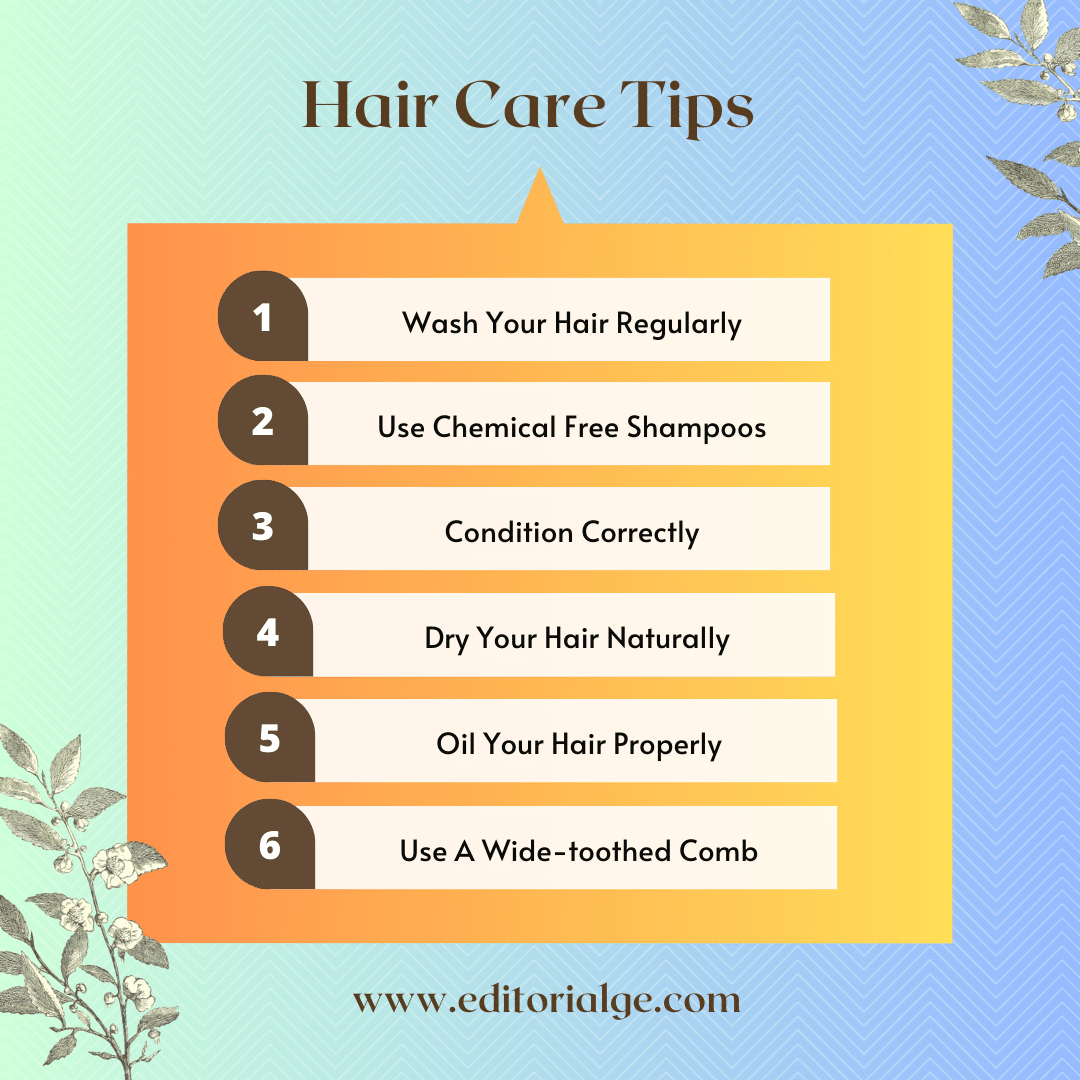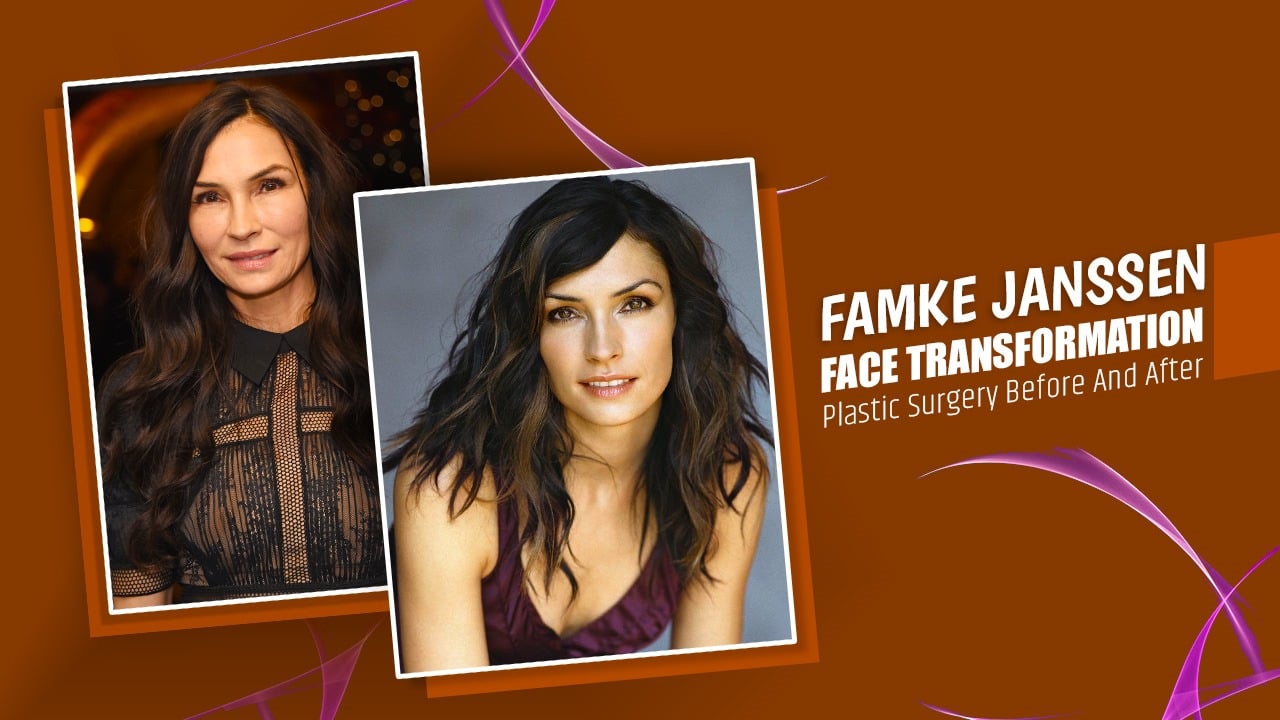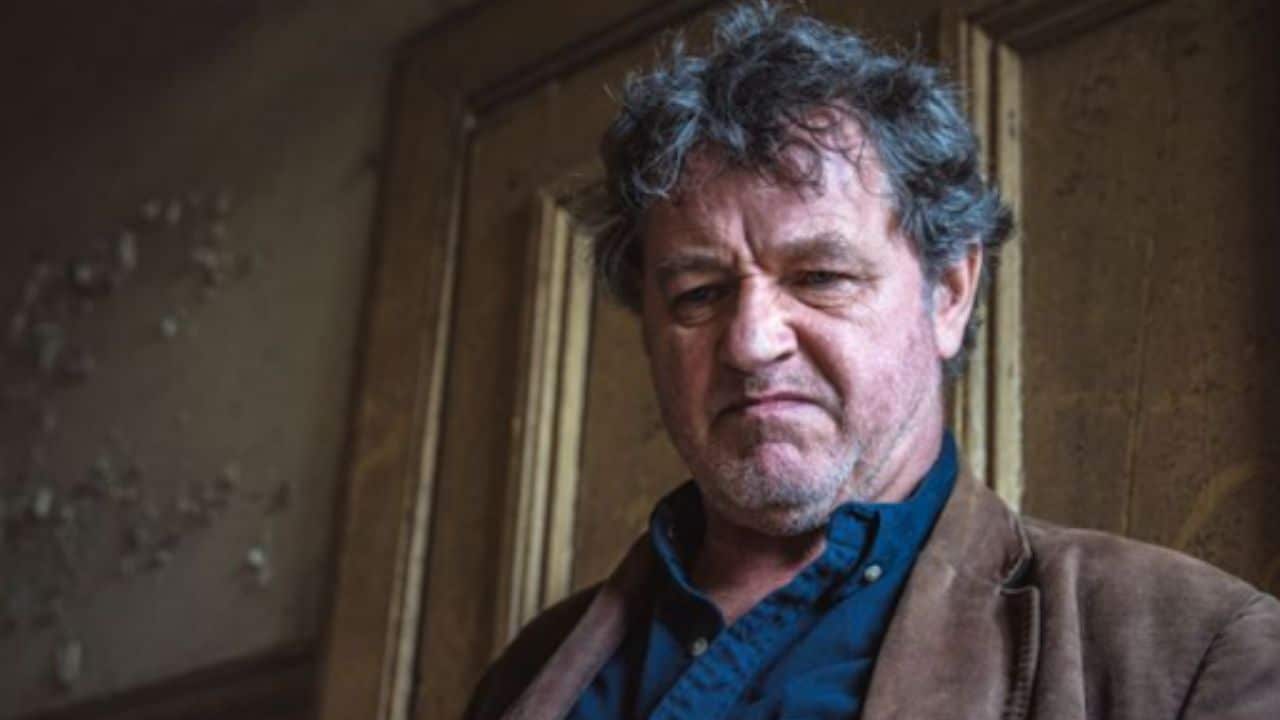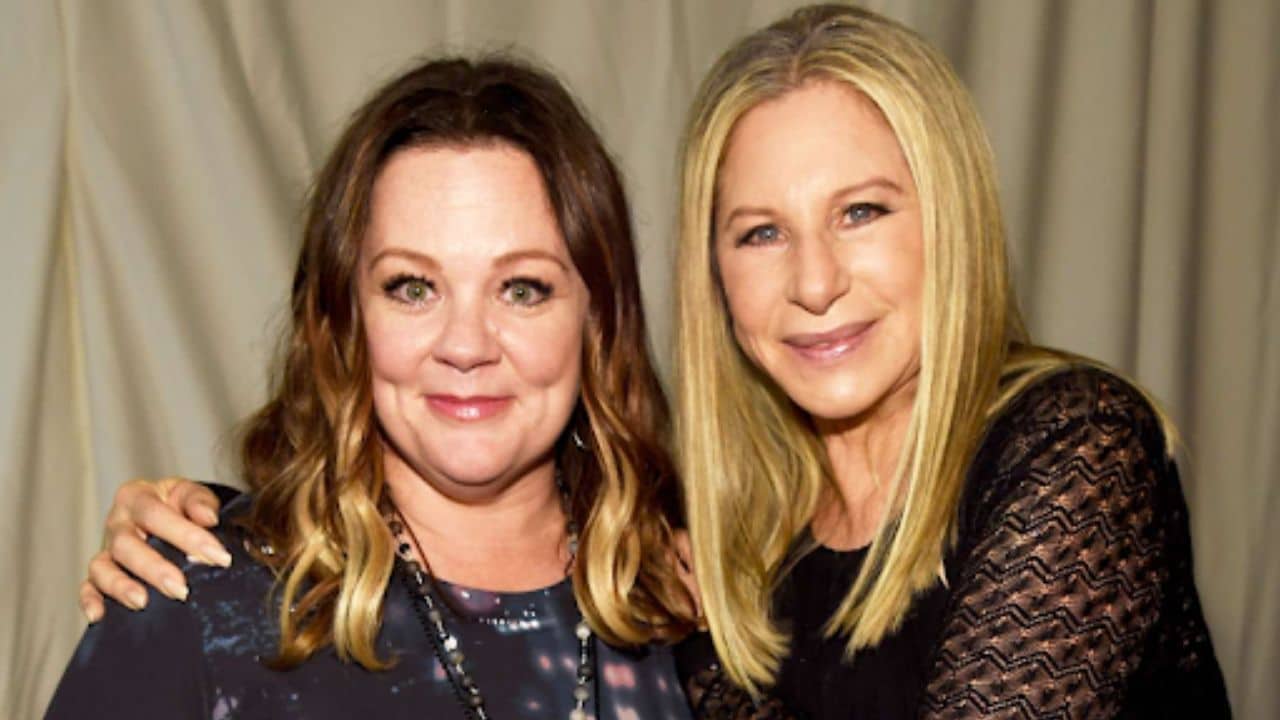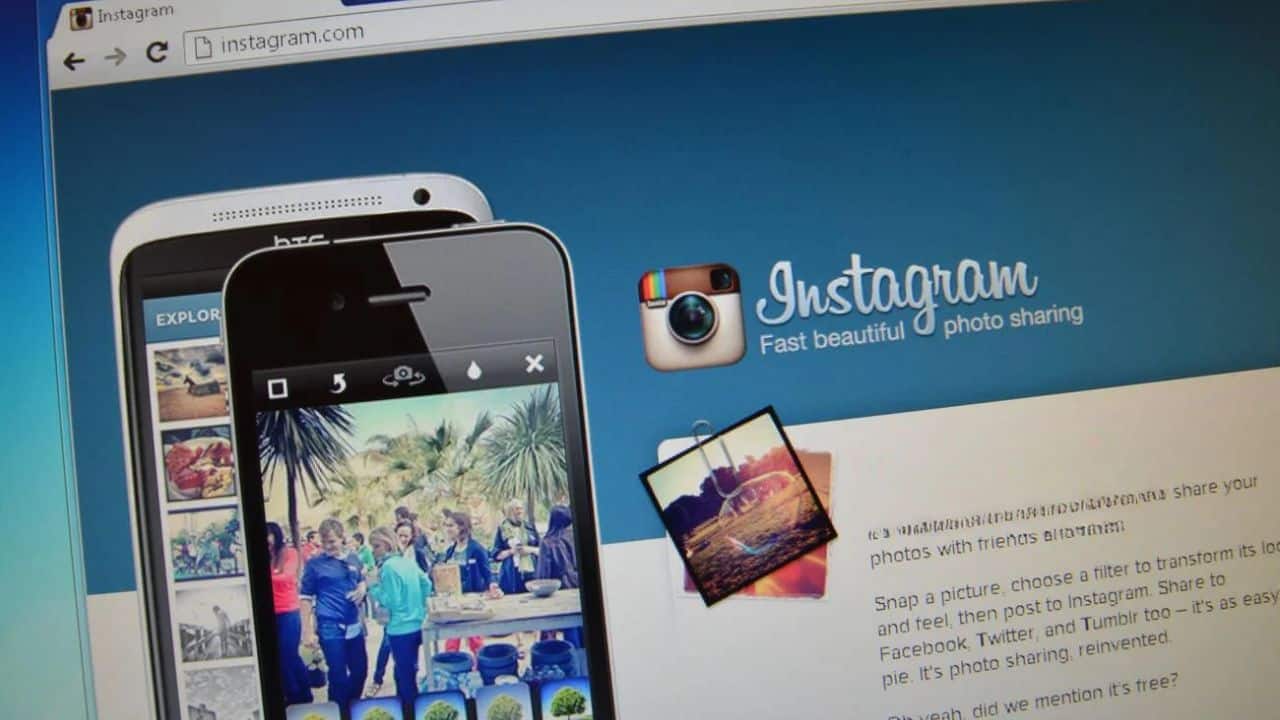Imagine you’re running late for an important event, and your hair is greasy. Desperate for a quick fix, you reach for that trusty bottle of dry shampoo on your shelf. A few spritzes later, your hair magically appears fresh and revived. But is dry shampoo bad for your hair?
The effects of using dry shampoo depend on the frequency of use. While dry shampoo absorbs sweat, grease, and oil, it doesn’t clean the hair or scalp. Over time, it can lead to a buildup of dirt, oil, and product residue, potentially causing inflammation, folliculitis, and seborrheic dermatitis.
We think now you’re curious! Keep reading everything about this, as we’ve covered everything in this article.
What is Dry Shampoo?
Dry shampoo is designed to absorb dirt, oil, and grease from the scalp without traditional washing. Individuals commonly use it to refresh their hair after exercising or enduring a humid commute. Dry shampoo can also benefit individuals with disabilities who face challenges in taking showers without assistance. Additionally, it can help extend the longevity of a professional blowout or hairstyle.
How Does Dry Shampoo Work?
Dry shampoo can have remarkable benefits for your hair when used correctly. Commercial dry shampoos, typically available in spray bottles, contain alcohol or starch as their base ingredients. When applied to the hair, they absorb oil and grease, resulting in a cleaner appearance.
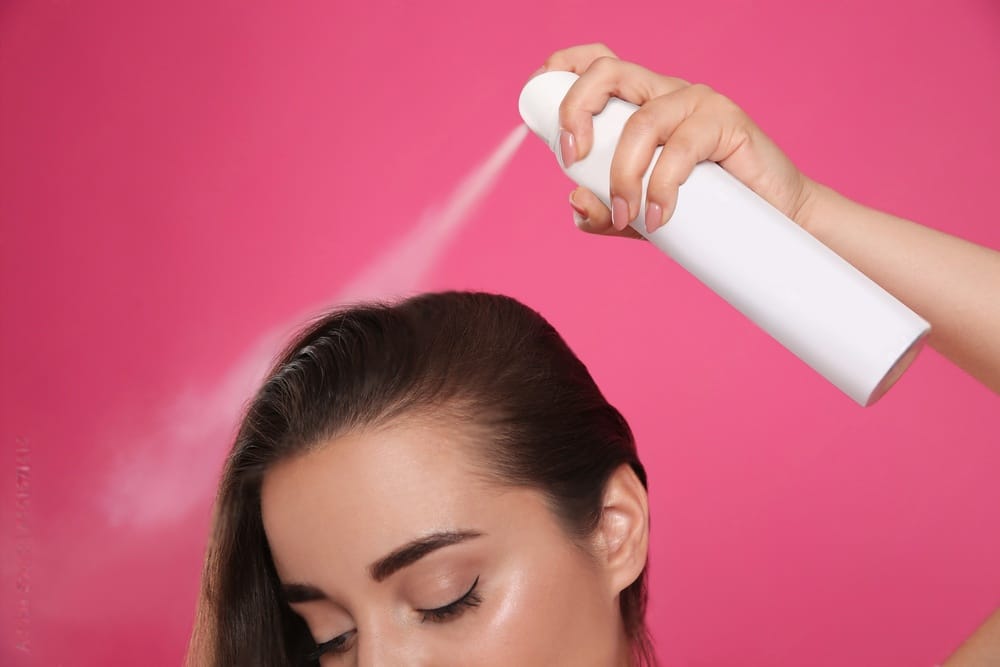
This allows for more versatile styling options. However, using dry shampoo judiciously is essential to avoid damaging the hair’s texture. Occasional use is acceptable, but excessive and frequent use can accumulate dirt on the scalp.
Is Dry Shampoo Bad for Your Hair?
The effects of using dry shampoo depend on how frequently you use it. Dry shampoos typically contain absorbent ingredients like alcohol and starches that soak up sweat, grease, and oil from the hair. However, it’s important to note that dry shampoo doesn’t clean the hair or scalp like regular shampoo.
Using dry shampoo over time can lead to a buildup of dirt, oil, and product residue, which can clog the hair follicles. This accumulation can cause inflammation and lead to conditions such as folliculitis, characterized by itchy and tender skin resembling acne. Dry shampoo can also trap fungus and contribute to seborrheic dermatitis, an inflammatory scalp condition that causes redness, scaly patches, and stubborn dandruff.
Excessive use of dry shampoo can hinder hair growth by blocking the hair follicles’ openings, limiting the number of strands that can grow. The buildup of styling products on the scalp can become dense, potentially leading to the sprouting of fewer strands. Additionally, dry shampoos often contain alcohol, which can dry out the hair, making it more prone to breakage and appear dull.
In summary, while dry shampoo can provide a temporary refreshed appearance, prolonged and frequent use without proper cleansing can negatively affect the scalp, hair growth, and hair health.
Why Dry Shampoo is Bad for You?
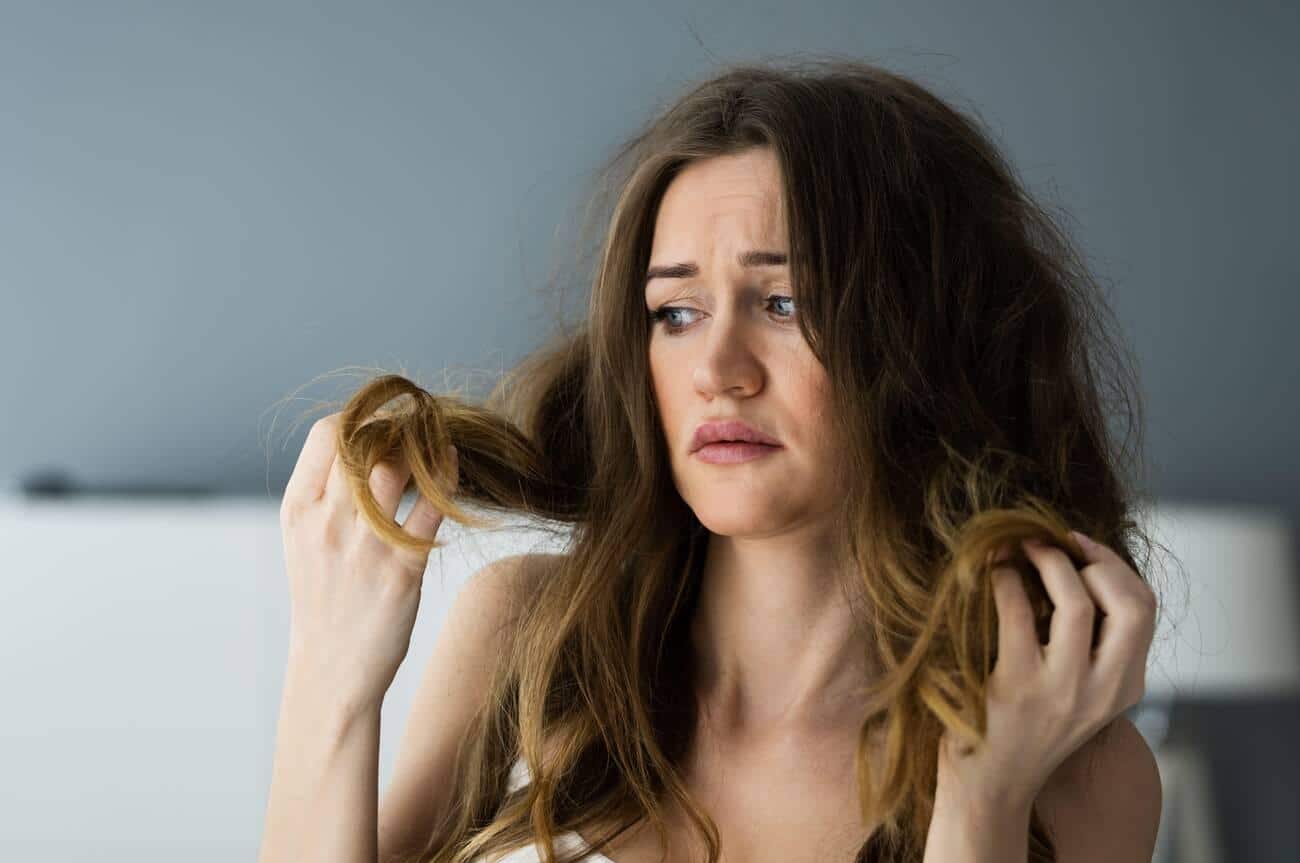
Here are some drawbacks of using dry shampoo
Ineffective Cleaning
Dry shampoo is not a true shampoo and does not clean the hair like regular shampoo and water. Instead, it contains ingredients like starch and alcohol that work by absorbing excess oil from the hair, making it appear less greasy. However, dry shampoo does not remove dirt, sweat, and product buildup from the hair and scalp as traditional shampoo does. It is a temporary solution to refresh the hair’s appearance between washes.
Hair Breakage
Many dry shampoos, particularly those in aerosol form, contain alcohol. These alcohols can have a drying effect on the hair strands. When the hair becomes dry, it loses its natural moisture and elasticity, making it more prone to breakage. Additionally, when combing or styling dry hair that lacks flexibility, the individual fibers can become brittle and easily snap or tangle, leading to breakage.
Clogged Hair Follicles
Frequent and excessive use of dry shampoo or leaving it in the hair for extended periods without proper cleansing can lead to product buildup on the scalp. This accumulation of dry shampoo, combined with other styling products and sebum (the natural oil produced by the scalp), can clog the hair follicles. This can create an environment where bacteria and fungus thrive, potentially leading to scalp issues such as folliculitis, an infection of the hair follicles characterized by redness, inflammation, and itching.
Dandruff and Seborrheic Dermatitis
Although no direct evidence links dry shampoo to dandruff, an overly oily scalp can contribute to dandruff formation. When dry shampoo is applied and left on the scalp, it absorbs oil but leaves behind the oils it has absorbed. These oils can nourish the Malassezia fungus, which is associated with dandruff and can contribute to developing seborrheic dermatitis. Seborrheic dermatitis is a common scalp condition characterized by red, scaly patches and persistent dandruff.
Potential Cancer Risk
Some commercial dry shampoos contain talc, a mineral that can naturally contain asbestos particles, a known carcinogen. However, talcum powders made for cosmetic use in the United States are not permitted to contain asbestos.
There have been concerns about a possible link between talc-free dry shampoos and ovarian cancer, particularly in products intended for use in the genital area. While there is no known risk of cancer from dry shampoos containing talc, the American Cancer Society encourages caution. It suggests avoiding the use of such products until further research is conducted.
Can Dry Shampoo Cause Hair Loss or Hinder Hair Growth?
While no specific research links dry shampoo directly to hair loss, it is essential to note that poor scalp health can contribute to hair loss. Hair loss can occur when hair emerges from follicles compromised by bacterial or fungal infections. When the follicles are damaged, the hair fibers may not be securely anchored, increasing the likelihood of hair shedding.
It’s crucial to prioritize scalp health and maintain a clean and balanced environment for optimal hair growth. Regular cleansing with proper shampoo and water can help remove dirt, oil, and product buildup from the scalp, reducing the risk of infections and potential hair loss.
Although dry shampoo can be a convenient option for refreshing the hair’s appearance between washes, it should not replace regular cleansing with traditional shampoo. By practicing good hair hygiene and ensuring a healthy scalp, you can promote optimal hair growth and minimize the risk of hair loss.
Related Read: Best Shower Chair
Benefits of Dry Shampoo
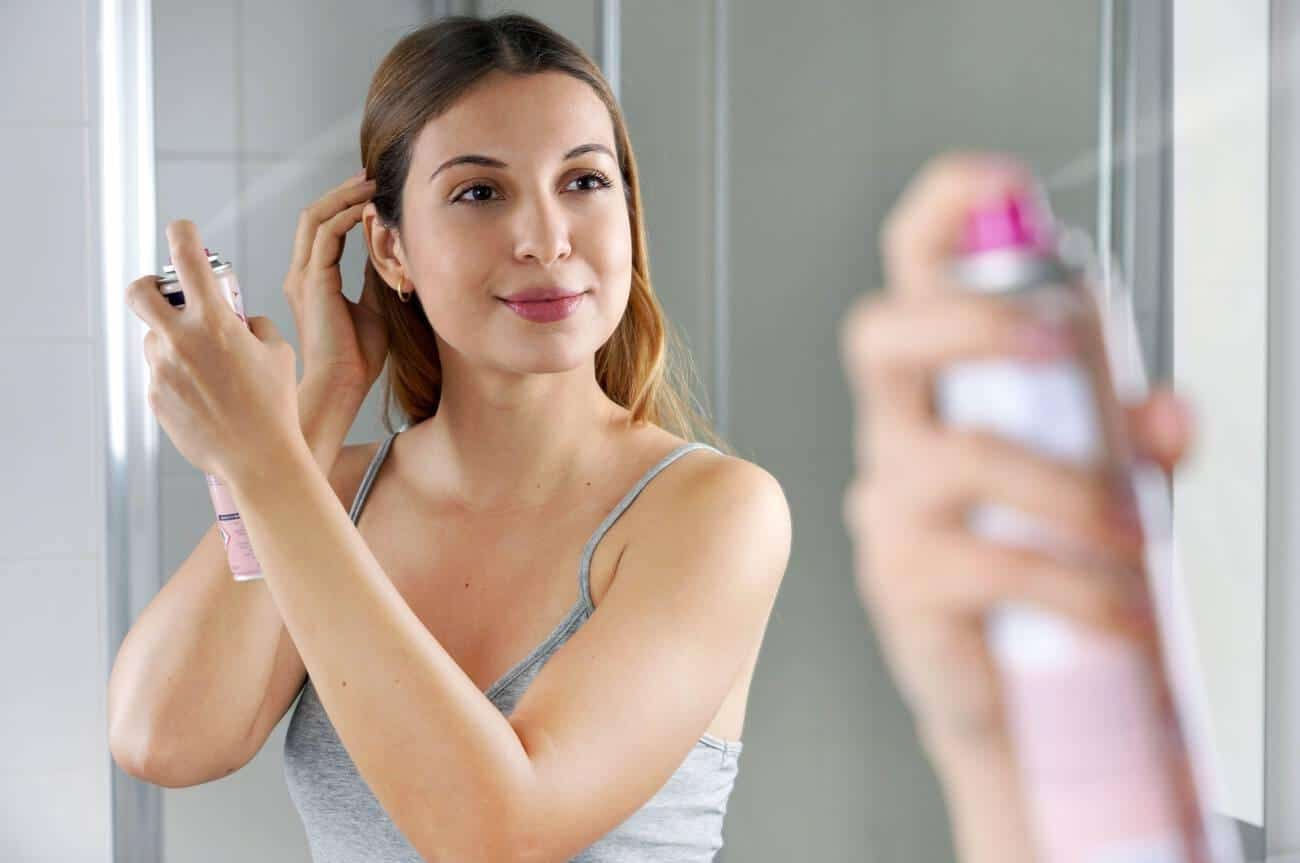
Though We’ve mainly discussed drawbacks, let’s get some benefits of dry shampoo.
- Absorbs oil: Dry shampoo effectively absorbs excess oil and sebum from the scalp, making the hair appear less greasy and refreshed between washes.
- Saves time: You can skip traditional hair-washing using dry shampoo, saving time and effort in your daily routine.
- Neutralizes odor: Dry shampoo helps neutralize unpleasant odors that can accumulate in the hair, leaving it fresher and cleaner.
- Increases color longevity: For individuals with color-treated hair, dry shampoo can help extend the vibrancy and longevity of their hair color by reducing the frequency of washes.
- Keeps hair healthy: With less frequent washing, the hair is exposed to less heat styling and chemical treatments, helping to maintain its natural moisture balance and overall health.
- Adds volume and body: Dry shampoo can provide added volume and body to the hair, giving it a fuller and more voluminous appearance.
A related article suggestion for you: The best way to clean a hairbrush
5 Best Dry Shampoos for Hair
Now, We’ll discuss shortly 5 dry shampoos in the market.
1. Klorane Dry Shampoo With Oat Milk
Klorane’s dry shampoo is a top pick, praised for its award-winning formula, excellent oil absorption, and volumizing effects. The gentle, plant-based formula utilizes starch and silica to combat oil and odors, while oat milk soothes the scalp. It is suitable for all hair types and leaves no dry or chalky residue.
2. Amika Perk Up Dry Shampoo
Amika Perk Up Dry Shampoo has excellent oil absorption and volumizing effects. It leaves hair with added volume and body while providing an invisible finish. The formula has a pleasant fruity/vanilla scent that dissipates over time.
3. Moroccanoil Dry Shampoo Light Tones
Moroccanoil Dry Shampoo Light Tones is designed for blonde, platinum, white, or gray hair. It features rice starch to absorb grease and product buildup, while argan oil nourishes and smooths the hair. The purple-toned formula helps neutralize brassiness, although it may be too heavy for fine hair.
4. Billie Floof Dry Shampoo
Billie Floof Dry Shampoo offers an aerosol-free powder option. With its absorbent properties powered by baking soda and rice starch, it effectively absorbs grease and strengthens hair with biotin. Available in light and dark shades, it blends seamlessly into the hair.
5. Oribe Gold Lust Dry Shampoo
Oribe Gold Lust Dry Shampoo is a splurge-worthy option known for its volumizing effects and invisible finish. The translucent powders in this dry shampoo effectively absorb product buildup, oil, and impurities. Although it has a higher price tag, our testers praised its effectiveness in absorbing oil, adding volume, and its luxurious feel. Additionally, the signature Côte d’Azur scent of the Oribe brand was highly appreciated by our testers.
How to Use Dry Shampoo Properly?
Here are the recommended steps for using dry shampoo effectively:
- Hold the canister approximately 6 inches from your head to maintain an appropriate distance.
- Directly spray the dry shampoo onto your hair rather than directly onto the scalp.
- Focus on applying the dry shampoo to areas where oiliness is most noticeable, typically around the temples and crown of your head.
- After spraying, use your fingers or a comb to gently work the dry shampoo into your roots, ensuring even distribution throughout the oily sections of your hair. This step helps loosen any excess product and blend it with natural hair oils.
How Often Should You Use Dry Shampoo?
The frequency of dry shampoo use should be limited to a day or two between regular shampoos. It can also be used daily as a styling aid to add volume to flat hair, particularly with a few spritzes on the crown.
However, paying attention to how you care for your hair when you wash it is essential. If you only wash your hair once or twice a week, performing a double cleanse (shampooing twice) and following up with regular conditioning is recommended. This helps ensure thorough cleansing while maintaining adequate hydration for your hair.
For individuals who wash their hair infrequently, additional measures can be beneficial. A daily anti-microbial scalp toner can help maintain scalp health, and a weekly exfoliating scalp mask can provide extra support to your scalp’s well-being.
By adopting these practices, you can balance using dry shampoo effectively and taking care of your hair and scalp during regular washing days.
Is Dry Shampoo Good for Oily Hair?
Dry shampoo is a fantastic addition to your hair care routine, especially if you struggle with oily hair. It offers multiple benefits that can transform the appearance of your hair. One of its primary advantages is its ability to absorb excess oils that accumulate on your scalp, giving your hair a greasy and limp appearance.
Applying dry shampoo effectively removes the oils that make your hair appear excessively slick. This results in a refreshed and revitalized look, as if you just washed your hair. Removing excess oil also has the added benefit of making your hair feel lighter and more manageable.
Another advantage of dry shampoo is its ability to enhance the volume and thickness of your hair. When oils weigh your hair down, it can appear flat and lackluster. Dry shampoo helps eliminate the oils that tend to weigh down your hair strands, allowing them to regain their natural bounce and vitality. As a result, your hair appears fuller and thicker, with improved body and texture.
Using dry shampoo can also save you time in your daily routine. Instead of washing and styling your hair daily, you can rely on dry shampoo to refresh and revive your locks, extending the time between washes. This is particularly convenient for those with busy schedules or when you’re on the go and don’t have access to a shower.
However, it’s essential to note that while dry shampoo offers these benefits, it’s not a substitute for regular hair washing. It’s still crucial to cleanse your hair and scalp thoroughly with water and shampoo to remove dirt, sweat, and product buildup. Dry shampoo is best used as a temporary solution to freshen your hair between washes.
Alternatives to Dry Shampoo to Refresh Your Hair

If you prefer alternatives to dry shampoo, there are several options you can consider while keeping your hair clean and well-conditioned. The frequency of hair washing should be determined based on your hair type and any chemical processing it may have undergone.
One alternative is to choose an organic commercial product if you are concerned about the chemical ingredients typically found in dry shampoos. These products often offer natural and plant-based alternatives.
Alternatively, you can create your dry shampoo using ingredients commonly found in your pantry. Cornstarch and rice starch are popular absorbent options that can be used as the base. Depending on your hair color, you can sprinkle cinnamon or cocoa powder to match your shade. A few drops of essential oils can be included for a natural fragrance to enhance the scent.
By exploring these alternatives, you can find options that suit your preferences and promote clean, conditioned hair without relying solely on traditional dry shampoo products.
Frequently Asked Questions on Dry Shampoo
Check some commonly asked questions on dry shampoo here.
Does dry shampoo cause cancer?
There is no scientific evidence to suggest that dry shampoo directly causes cancer. Dry shampoos typically contain ingredients like alcohol, starches, and other absorbents to help remove oil and refresh the hair. While some dry shampoos may contain chemicals or ingredients potentially harmful in large quantities or with prolonged exposure, the levels found in commercially available dry shampoos are generally considered safe for use.
Is dry shampoo better than washing your hair?
No, dry shampoo is not better than washing your hair with water. While it can be convenient for refreshing your hair temporarily, it doesn’t provide the same level of cleansing as water-based shampooing, which is essential for maintaining scalp health and removing impurities.
Is the Batiste dry shampoo safe?
Batiste dry shampoo is considered safe for use on all hair colors. Using Batiste products can help extend the duration of your hair color by reducing the frequency of hair washing. If you have color-treated hair that tends to be dry, you can try Batiste’s hydrating formulas, which are available in both dry shampoo and foam formats.
Is dry shampoo bad for your scalp?
The buildup of dry shampoo on the scalp can potentially hinder the delivery of nutrients to the hair follicles. This raises concerns about the potential adverse effects of dry shampoo on scalp health.
Is dry shampoo bad for your lungs?
Inhaling dry shampoo can lead to lung irritation, particularly in more susceptible individuals. This raises concerns about the potential negative impact of dry shampoo on lung health.
Is baby powder better than dry shampoo?
While baby powder can function similarly to dry shampoo, there are disadvantages. Baby powder contains talc and specific mineral oils that may not be suitable for scalp health, unlike dry shampoo formulations.
Bottomline
By now, you should get over all your confusion on the topic – Is dry shampoo bad for your hair?
For most people, using dry shampoo occasionally should not pose any issues. However, excessive use of dry shampoo can make your hair more susceptible to breakage and may negatively impact the health of your scalp.
To maintain the health of your hair and scalp, it is advisable to limit dry shampoo to only 1 or 2 days per week.
Disclaimer: This content is for informational purposes only and does not replace professional medical advice, diagnosis, or treatment. This information is not comprehensive and should not be used to make health or well-being decisions. Consult a qualified healthcare professional with questions about a medical condition, treatment options, or health regimen. This website or the content should never replace professional medical advice.


